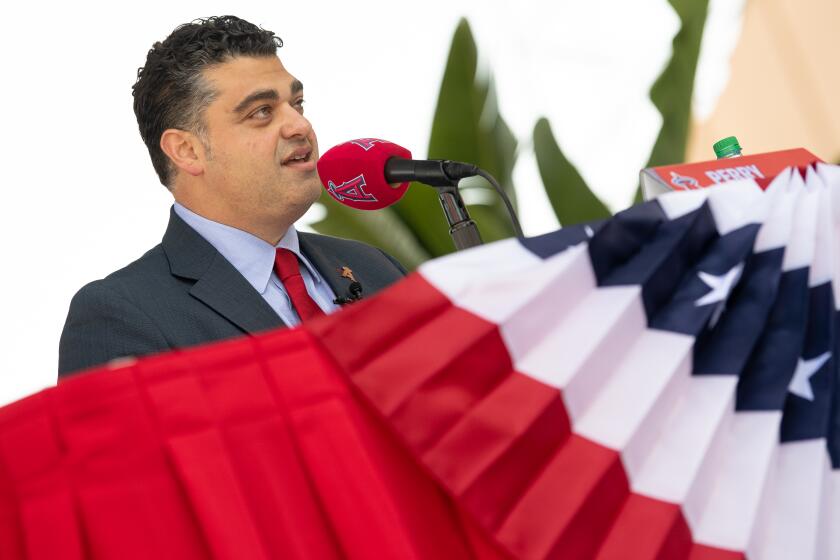Judge denies motion to compel Angels to comply with subpoena in Tyler Skaggs case

A federal judge has denied a motion by prosecutors to compel the Angels to comply with a subpoena seeking information about members of the organization possibly distributing drugs.
The decision was revealed in a filing by the Angels on Thursday in U.S. District Court in Fort Worth, Texas, asking Judge Terry Means to unseal his order.
“In its Motion, the government baselessly accused Angels Baseball of acting in bad faith with regards to the subpoena and the government’s investigation as a whole,” the motion signed by team attorney Ariel Neuman said. “These very public accusations by the United States Department of Justice unfairly and inappropriately maligned Angels Baseball’s reputation and brand, and attracted significant media attention.
“The Order denying the Motion to Compel makes clear that the government’s accusations were baseless and that Angels Baseball acted properly and lawfully.”
The filing, which says the order doesn’t indicate why it was filed under seal, noted the government opposes unsealing.
A spokeswoman for the prosecutors didn’t immediately respond to a request for comment, and Neuman declined to comment.
Angels general manager Perry Minasian discussed the team’s priorities during the offseason.
The motion comes three weeks before the trial of former Angels communications director Eric Kay in connection with the overdose death of pitcher Tyler Skaggs is scheduled to start in Fort Worth.
Kay is charged with felony counts of conspiring to possess with the intent to distribute fentanyl since at least 2017 and with distributing the fentanyl that led to Skaggs’ death in a Texas hotel room on July 1, 2019. Kay has pleaded not guilty.
Prosecutors subpoenaed the Angels in late July — Kay’s trial was originally scheduled to begin in August before being pushed back to Nov. 8 — then accused the team of refusing to comply in a strongly-worded motion.
“Put simply, it strains credulity to accept any assertion that the [Angels] ... organization has not a single document, record, or report for months after one of its pitchers overdosed and died on a trip taken by the team,” the motion filed Aug. 23 said, “for months after Kay confessed to another Angels employee that he was in [Skaggs’] room late on June 30, 2019, and witnessed [Skaggs] ingesting drugs; and for weeks after learning about allegations of drug distribution by employee(s) within the organization.”
The Angels pushed back in a court filing, asserting that the team has “produced thousands of pages of documents and an entire computer hard drive to the government in response to at least five subpoenas and requests for information” and “facilitated the interviews of numerous of its employees” while the only documents withheld have been because of attorney-client privilege.
For the Angels, the Anaheim weather is always perfect, the stadium remains beautiful, and the team is perpetually lousy.
After the initial back and forth, the dispute played out through a handful of sealed filings. The motion by the Angels, the first public filing in the case since Sept. 21, argues there is no reason for the judge’s order to remain secret.
“The Order references two sealed documents, but the quotes from those documents contain information that is otherwise publicly available through the parties’ other filings,” the motion said. “Unsealing the Order would not therefore compromise the original rationales that justified sealing other filings in connection with the Motion.”
More to Read
Go beyond the scoreboard
Get the latest on L.A.'s teams in the daily Sports Report newsletter.
You may occasionally receive promotional content from the Los Angeles Times.









